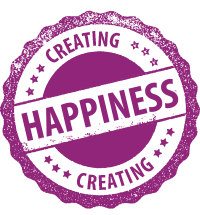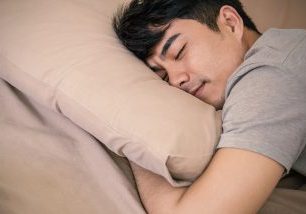You have heart palpitations. Pearls of sweat are on your forehead. Shortness of breath makes it hard to get enough air into your lungs. Your mind is foggy, and you are feeling overwhelmed.
You wonder, are those stress or anxiety symptoms?
Stress and anxiety share many physical symptoms, and it can be difficult to distinguish between the two. Let’s take a closer look!
The causes of stress and anxiety are usually different
In everyday life, stress is a response to an external problem you find difficult to cope with. You know what you are stressed about, and once the stressful event goes away, the symptoms disappear.
The stress trigger could be short-term, like not finding your car keys, a whining kid in the back of the car, or a deadline at work. Or long-term, like loss of a job, chronic illness, or being in a dysfunctional relationship.
Anxiety, on the other hand, can be a byproduct of internal physiological and mental activity, an impending problem that might occur. You spend a lot of time contemplating possible negative outcomes. The focus is on “what ifs.” Thoughts about the future consume a lot of mental energy. Excessive worry is taking over your life. Anxiety is still present even when a stressful situation has been removed.
Learning healthy thinking patterns and remaining grounded in the present are key components in the reduction of anxiety.
In moderation, stress and anxiety are lifesavers
They keep you alive and thriving 🙂
Stress and anxiety both trigger the fight-or-flight response. This is an automatic physiological reaction that occurs when faced with stressful or frightening events. It is your own survival mechanism, preparing you to fight the threat off or flee to safety.
When triggered, a cascade of stress hormones is released in your bloodstream, which causes well-coordinated physiological changes.
Your heart and breathing rate increase, allowing more oxygen to flow to your muscles. Your senses are more alert. Your pain perception gets lowered, and your focus narrows. All of this puts you in the optimal situation to master the threat you face.
This well-designed response has allowed our species to thrive, and it most likely has come in handy many times in your own life. It is your ally. Without it, you would not have made it this far.
Persistent worry and stress can result in chest pain, rapid heart rate, sweaty palms, dry mouth, sleep disturbances, difficulty concentrating and making decisions, and constant internal agitation.
Excessive anxiety and chronic stress can trigger panic attacks. Your quality of life is significantly decreased.
When your fight-or-flight center is constantly activated, it is like a motor that is idling too high for too long. Your system never has the break it needs to restore itself. This contributes to the health problems associated with chronic stress and anxiety, like digestive issues and auto-immune diseases.
The constant release of adrenaline can damage blood vessels and arteries. It increases blood pressure and can contribute to causing a stroke or heart attack. High levels of the stress hormone cortisol will make you want to eat more to gain energy. This can lead to an increase in fat tissue and weight gain.
There are a variety of diagnosable anxiety disorders
Chronic high levels of anxiety can be due to different reasons. Consulting a mental health professional can provide insight into the cause of your anxiety. Understanding your situation more in-depth can help with putting together a tailored treatment plan for you and speed up your recovery.
Some common anxiety disorders are generalized anxiety disorder, panic disorder, social anxiety disorder, agoraphobia, phobias, and separation anxiety disorder. High levels of anxiety can also be found with post-traumatic stress disorder and obsessive-compulsive disorder.
How do I lower stress and anxiety symptoms?
Relaxation and mindfulness techniques can help you greatly with managing stress and anxiety. Deep breathing exercises, mindfulness tools, systematic muscle relaxation, body scans, visualizing a peaceful place, yoga, tai chi, and adult coloring books all help in calming your inner fight-flight system.
I want to share a story with you:
A student comes to a teacher. The student had a hard life. They tell the teacher in detail about all the pain they had suffered. The teacher is wise and kind and listens attentively. Then the student shares all their fears about the future with the teacher. The teacher keeps listening patiently. But then, after a while, they stop the student and ask, “But my dear friend, what is wrong right now?”. Then the student stops, pauses, and says, “Nothing.”
That is what anxiety does to you. It disconnects you from the peace that is present. It gets your mind hooked on worrying about the future. You lose touch with all that is already good in your life right now.
Mindfulness and relaxation exercises can open your eyes to the peace that is already available in the present. Using your five senses to connect you to the present calms your nervous system down.
Rigorous physical activity changes your brain chemistry and releases anti-anxiety and anti-stress neurochemicals. It can help with shifting focus and lowers muscle tension. It activates the frontal regions of the brain responsible for executive function. This helps control the fight-flight center and aids in healthy perspective-taking.
Good sleep hygiene is a key factor in lower anxiety and stress symptoms. Implement a consistent sleep schedule, even on weekends. Do not use the bed in the daytime. Stop screen time an hour before going to bed. Treat yourself to some wind-down time: take a warm bath, have a soothing cup of tea, dim the lights, and read something inspiring. A bedtime story on the couch can help with dozing off before you go to bed.
Healthy eating patterns help with mitigating anxiety and stress. Try to reduce your consumption of refined sugar, caffeine, and highly processed foods. They lead to unstable blood sugar levels and can contribute to an increase in anxiety and stress symptoms.
Gratitude exercises keep your mind grounded in the present moment. They highlight what is already good in your life. Just one minute of focusing on all that is right in your life can lift your mood and put a smile on your face.
If you have a hard time finding those good things in daily life, I suggest trying to think smaller.
Like the fact that you can take a deep, delicious breath right now, are able to see vibrant colors, and have easy access to drinking water. If you can see the small things (which really are big things!) and appreciate them, your stress and anxiety can drop.
Therapy is a game-changer!
If you have tried everything you can think of and you still have high levels of stress and anxiety, it’s time to consult a mental health professional.
They will help you find the roots that are fueling your emotional pain and teach you the tools you are missing. Their insight and expertise can provide you with a map toward the life you want.
In my clinical experience, acceptance and commitment therapy (ACT) is an excellent therapeutic approach to changing your relationship with anxiety and stress. The application of exposure therapy is also effective when treating social anxiety, phobias, and obsessive-compulsive disorder (OCD).
Anxiety and stress are part of the human experience. There is no life without them. In moderation, they are helping you to survive and thrive.
If levels are too high, you can feel sick. The goal is to learn how to manage stress and anxiety, by changing your relationship with them, so that they have less power over you. To use them to motivate and energize you.
I wish you all the best on that journey!

This post is part of the blog series "Creating Happiness", your inspiration to promote positive change in your life.
Do you like Daniela's posts? Subscribe to her blog series:
ABOUT THE AUTHOR
Ms Daniela Beer-Becker, Psychologist
Daniela is a regular contributor to the Blake Psychology blog and author of the "Creating Happiness" series.
MORE POSTS IN THE SERIES
















